
Ndeke: The Heartbeat of Ndola
Welcome to Ndeke, a vibrant and dynamic neighborhood nestled in the bustling city of Ndola, Zambia. Known for its warm and welcoming community, Ndeke offers a unique blend of traditional Zambian culture and modern urban life, making it an ideal destination for tourists seeking an authentic experience. As you stroll through the streets of Ndeke, you'll be captivated by the lively atmosphere and the rich tapestry of sights, sounds, and smells that define this neighborhood. From the bustling markets where local vendors sell fresh produce and handmade crafts, to the array of eateries offering delicious Zambian cuisine, there is always something to see and do. Ndeke is also home to several cultural and historical landmarks that provide a glimpse into the area's past and present. The Ndeke Peace Park is a serene spot perfect for a relaxing afternoon, while the nearby Ndola Central Mosque offers a stunning example of local architecture. Whether you're exploring the local shops, enjoying a meal at a family-owned restaurant, or simply soaking in the vibrant community spirit, Ndeke promises an unforgettable experience.
Local tips in Ndeke
- Visit the local markets early in the morning for the freshest produce and the best selection of handmade crafts.
- Try traditional Zambian dishes like nshima and chibwabwa at local eateries for an authentic culinary experience.
- Spend some time in Ndeke Peace Park to relax and soak in the serene surroundings.
- Respect local customs and traditions, especially when visiting religious sites like the Ndola Central Mosque.
- Engage with the locals; they're friendly and often happy to share stories about Ndeke's rich history and culture.
Ndeke: The Heartbeat of Ndola
Welcome to Ndeke, a vibrant and dynamic neighborhood nestled in the bustling city of Ndola, Zambia. Known for its warm and welcoming community, Ndeke offers a unique blend of traditional Zambian culture and modern urban life, making it an ideal destination for tourists seeking an authentic experience. As you stroll through the streets of Ndeke, you'll be captivated by the lively atmosphere and the rich tapestry of sights, sounds, and smells that define this neighborhood. From the bustling markets where local vendors sell fresh produce and handmade crafts, to the array of eateries offering delicious Zambian cuisine, there is always something to see and do. Ndeke is also home to several cultural and historical landmarks that provide a glimpse into the area's past and present. The Ndeke Peace Park is a serene spot perfect for a relaxing afternoon, while the nearby Ndola Central Mosque offers a stunning example of local architecture. Whether you're exploring the local shops, enjoying a meal at a family-owned restaurant, or simply soaking in the vibrant community spirit, Ndeke promises an unforgettable experience.
Iconic landmarks you can’t miss
Jacaranda Mall
Explore Jacaranda Mall in Ndola, a shopping paradise offering a unique blend of retail, dining, and entertainment experiences for all visitors.
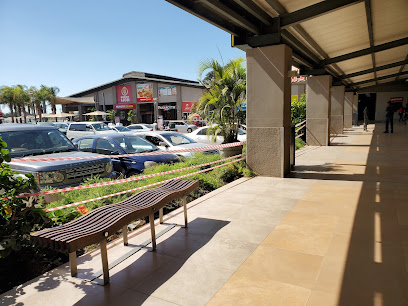
Leeja Palace Restaurant & Bar
Experience the best of Indian cuisine at Leeja Palace Restaurant & Bar in Ndola, where every dish tells a flavorful story.
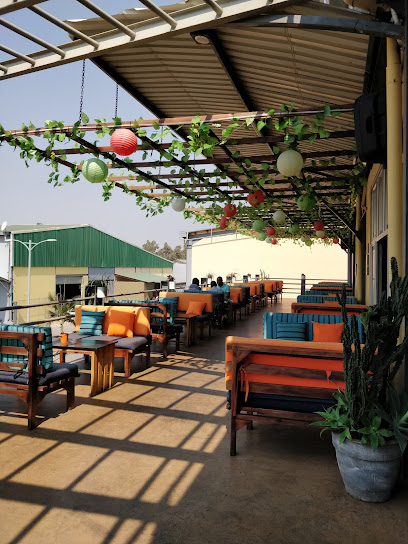
Trade Fair Grounds
Experience the lively Trade Fair Grounds in Ndola, a cultural hub showcasing local crafts, food, and unforgettable events in Zambia.
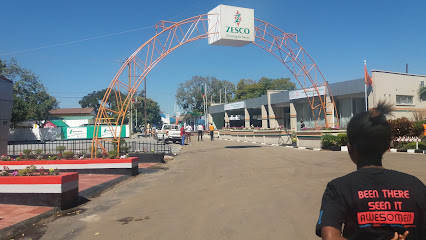
Copperbelt Museum
Explore the Copperbelt Museum in Ndola for an insightful journey through Zambia's mining history and cultural heritage.
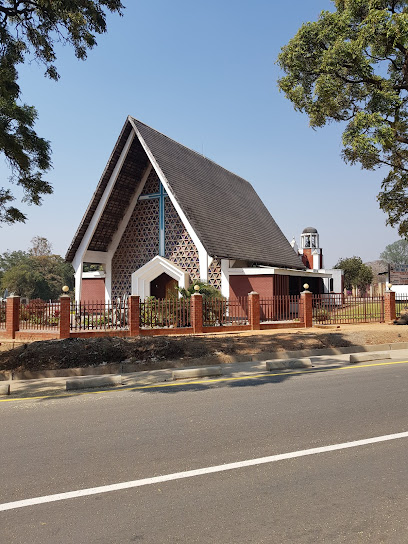
Dola Hill Lying Dragon Game Centre
Discover family fun at Dola Hill Lying Dragon Game Centre in Ndola, Zambia, with thrilling rides and games for children of all ages.
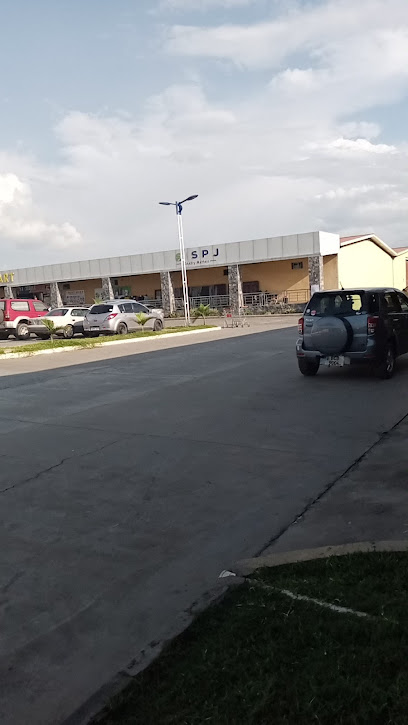
Kwacha Blue Mint
Experience the vibrant nightlife at Kwacha Blue Mint in Ndola - the perfect bar for relaxation and local culture.

Ndola cafe
Discover Ndola Cafe: A Culinary Gem in Zambia’s Vibrant City of Ndola, Offering Delicious Local Flavors and a Warm, Inviting Atmosphere.
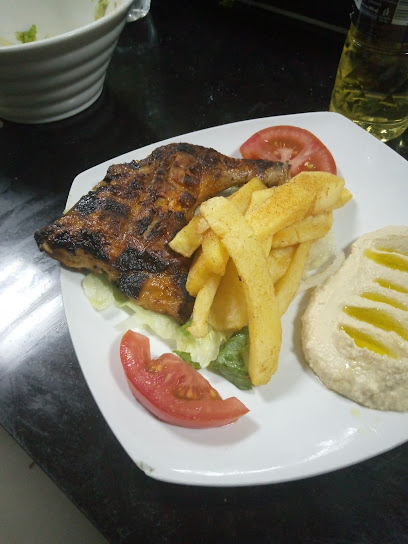
Dag Hammarskjöld Crash Site Memorial
Explore the Dag Hammarskjöld Crash Site Memorial, a poignant reminder of a leader's legacy and a significant landmark in Ndola's rich history.
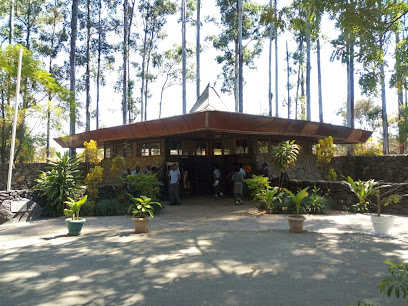
The Oak Garden
Experience tranquility in Ndola at The Oak Garden, where nature's beauty and serene landscapes await every visitor.
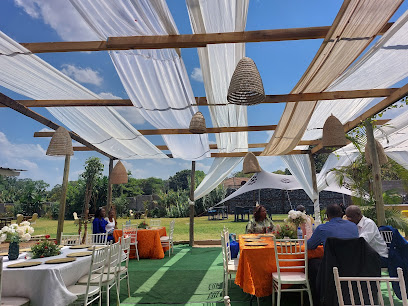
Bethsaida
Experience the serene beauty of Bethsaida Park in Ndola, a perfect blend of nature and tranquility for tourists and locals alike.
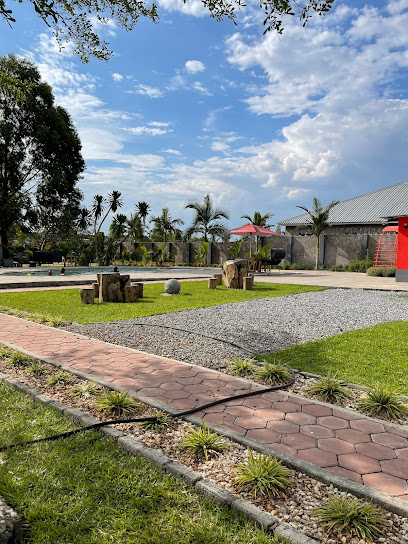
Monument
Discover the historic monument of Ndola, a captivating landmark that showcases Zambia's rich heritage and cultural significance.
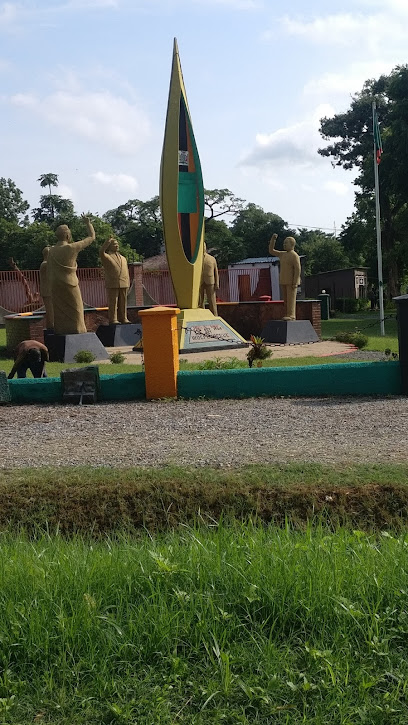
The Big Tree
Discover the grandeur of The Big Tree in Ndola, a historical landmark that embodies the beauty and cultural significance of Zambia’s natural heritage.
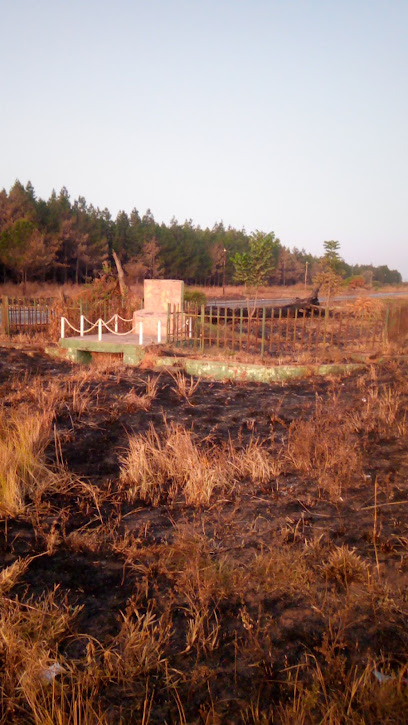
Ndola
Discover the delightful bakery in Ndola, Zambia, where fresh, locally-inspired baked goods await to tantalize your taste buds.

Slave tree
Discover the poignant history at the Slave Tree in Ndola, a powerful reminder of the region's past and its cultural significance.

Miles And Places
Discover the best of Zambia with Miles And Places, your trusted travel agency for unforgettable adventures and cultural experiences in Ndola.
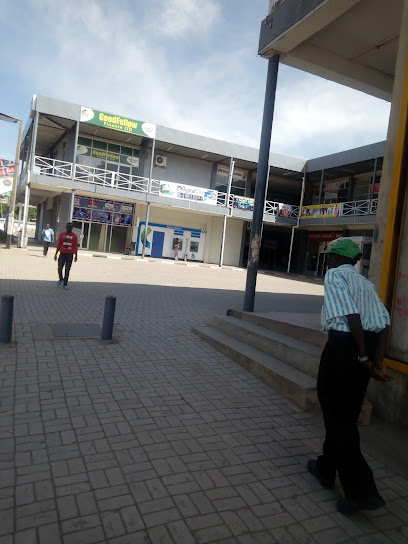
Unmissable attractions to see
The Oak Garden
Discover tranquility at The Oak Garden in Ndola, a serene oasis perfect for nature lovers and those seeking peaceful retreats.
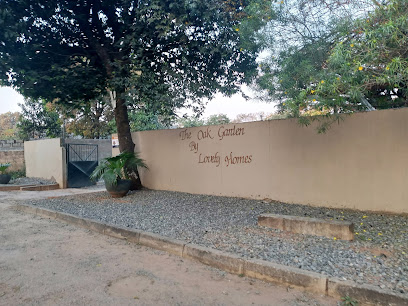
Waterfront Events Centre
Experience the beauty and community spirit at the Waterfront Events Centre, Ndola's premier park for relaxation and cultural events.
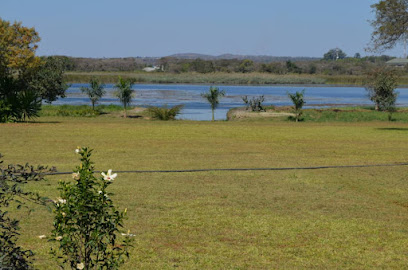
Virgin Mary Grotto
Discover tranquility and spiritual beauty at Virgin Mary Grotto, a serene park in Ndola perfect for relaxation and reflection amidst lush greenery.
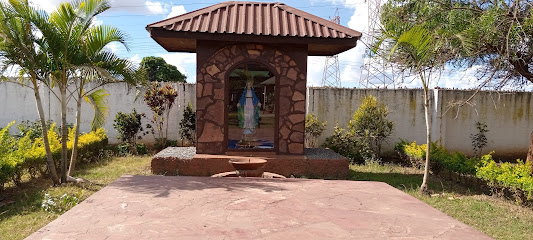
Essential places to dine
Nando's Ndola
Experience authentic South African cuisine at Nando's Ndola with mouthwatering peri-peri chicken and vibrant family-friendly atmosphere.
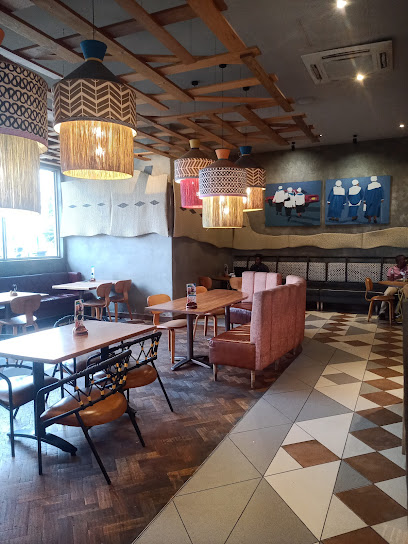
Ndola cafe
Experience authentic Zambian flavors and international dishes at Ndola Cafe in the heart of Ndola.
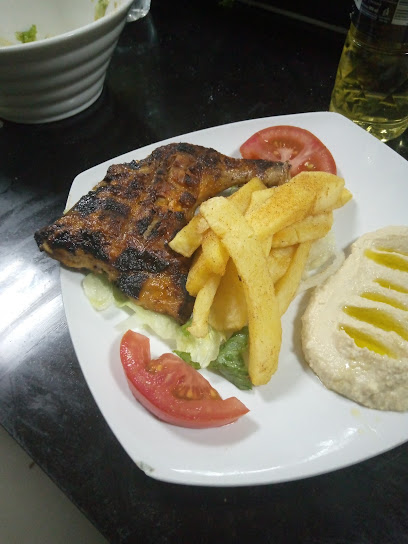
Su. Restaurant And Shop
Experience the rich flavors of Zambia at Su. Restaurant And Shop in Ndola – where culinary artistry meets local tradition.
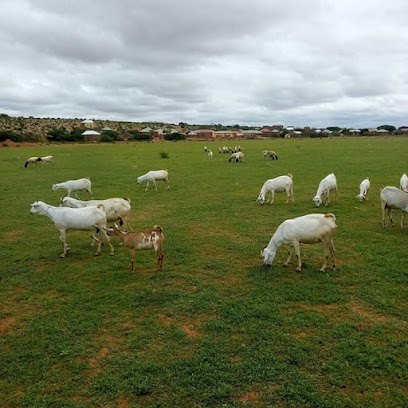
Panarottis Jacaranda
Experience authentic Italian dining at Panarottis Jacaranda in Ndola's vibrant Jacaranda Mall – where every bite is a journey through Italy.
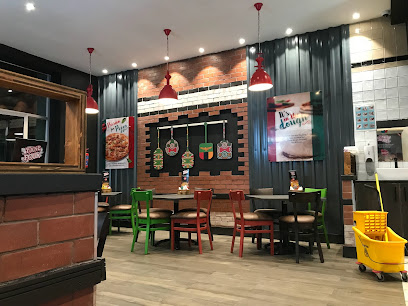
Jiija restaurant
Experience authentic Zambian flavors at Jiija Restaurant in Ndola - where every meal is a celebration of local cuisine.

Bismillahi resturant n shop
Experience authentic Zambian cuisine at Bismillahi Restaurant & Shop in Ndola - a must-visit culinary destination for every traveler.

Chita Pub & Grill and Barbershop
Experience the vibrant flavors and social atmosphere at Chita Pub & Grill in Ndola - your go-to destination for delicious grilled cuisine.

Marilyn's
Experience the vibrant flavors of Zambia at Marilyn's Grill in Ndola, where delicious grilled dishes meet a welcoming atmosphere.

Faga food enterprises ndeke
Experience authentic Zambian cuisine at Faga Food Enterprises in Ndola, where local flavors meet warm hospitality for an unforgettable dining experience.

Sweet and spicy shawarma Jacaranda mall
Experience delectable shawarma flavors at Sweet and Spicy Shawarma in Jacaranda Mall, Ndola - a must-visit for food lovers!

Markets, malls and hidden boutiques
JOZ Boutique
Explore the vibrant fashion scene at JOZ Boutique in Ndola – a unique clothing store offering local and contemporary styles.
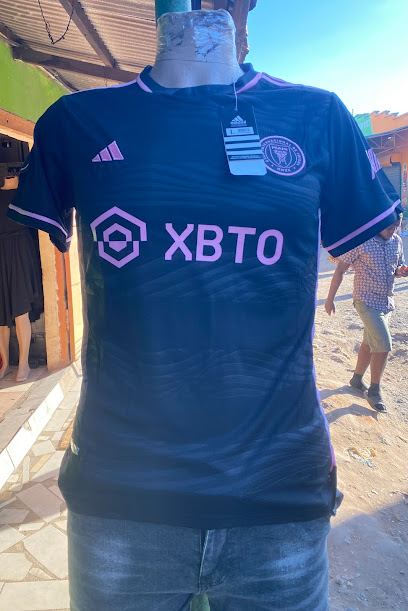
Ndola
Explore Ndola's vibrant bakery scene and indulge in delightful pastries and local treats that showcase the heart of Zambian culture.

SHAALI ENTERPRISE
Explore the vibrant offerings of Shaali Enterprise, a local general store in Ndola showcasing Zambian culture and unique artisan products.
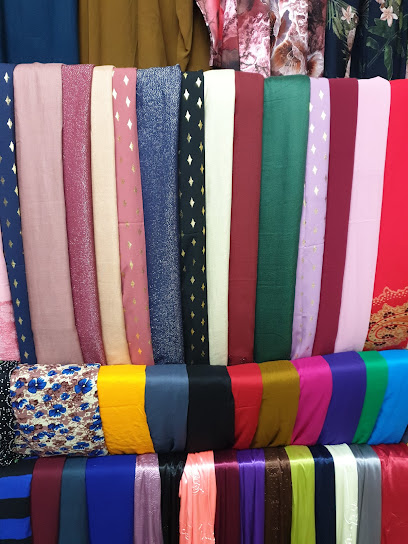
Ladan Mohamed Warsame Shopping and Caffeteria
Discover local crafts and savor authentic Zambian cuisine at Ladan Mohamed Warsame Shopping and Cafeteria in Ndola.

Life Is Awesome
Experience the vibrant culture of Ndola at Life Is Awesome, a general store in New Ndeke Market offering unique local crafts and everyday essentials.

UMA MASTALIFA SHOP
Explore Uma Mastalifa Shop in Ndola for a unique shopping experience filled with local crafts, culture, and warmth.

MINAAZ ENTERPRISE
Explore the vibrant local culture and unique offerings at MINAAZ ENTERPRISE, Ndola's favorite general store for tourists and locals alike.

Superlife- The Health Boutique ( Jackranda Mall , Ndola )
Explore Superlife in Jackranda Mall, Ndola – your destination for health and beauty essentials that elevate well-being during your travels.

Amirshop
Discover the vibrant fashion scene at Amirshop in Ndola, where local designs meet contemporary styles for an unforgettable shopping experience.

Khule 24-7 PluG+ Store
Explore the vibrant fashion scene at Khule 24/7 PluG+ Store in Ndola, offering a unique blend of trendy and traditional attire for every taste.

Essential bars & hidden hideouts
Lozyo bar & grill
Discover the vibrant atmosphere and local flavors at Lozyo Bar & Grill in Ndola, a must-visit destination for every traveler.

The Palace Pub and Grill
Experience the vibrant nightlife of Ndola at The Palace Pub and Grill, where local flavors meet great company in a lively atmosphere.

Lizzy's Den
Discover the lively atmosphere of Lizzy's Den, a vibrant bar in Ndola offering a unique blend of local culture and refreshing drinks.
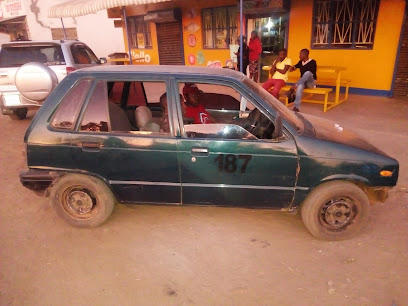
Renny's Pub & Grill
Discover the lively atmosphere and delicious flavors at Renny's Pub & Grill, a top bar in Ndola that promises an unforgettable dining experience.

Marilyn's
Discover delicious grilled dishes and authentic Zambian flavors at Marilyn's Grill in Ndola, a must-visit culinary destination.

M and M sisters
Experience the vibrant nightlife at M and M Sisters, a local bar in Ndola, Zambia, known for its delicious drinks and welcoming atmosphere.

Chita Pub & Grill and Barbershop
Experience the vibrant flavors of Zambia at Chita Pub & Grill, where delicious grilled dishes meet a lively atmosphere in Ndola.

The Dizzy Bay Pub
Experience the vibrant nightlife of Ndola at The Dizzy Bay Pub, a welcoming bar with a local touch and extensive drink options.
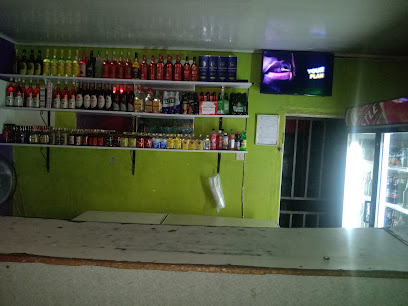
Quarantine bar
Experience the vibrant nightlife and relaxing ambiance of Quarantine Bar in Ndola, the perfect spot for drinks and socializing.

M & M pub and Grill
Discover the vibrant atmosphere of M & M Pub and Grill in Ndola, where local flavors meet lively entertainment for an unforgettable night out.

Local Phrases
-
- HelloMuli bwanji
[moo-lee bwan-jee] - GoodbyeKwa bwino
[kwa bee-no] - YesEe
[ay] - NoAy
[eye] - Please/You're welcomeChonde
[chon-deh] - Thank youZikomo
[zee-koh-moh] - Excuse me/SorryPepani
[peh-pah-nee] - How are you?Muli bwanji?
[moo-lee bwan-jee] - Fine. And you?Ndili bwino. Kaya inu?
[ndee-lee bee-no. kah-yah ee-noo] - Do you speak English?Mukufuna kuseka Chingerezi?
[moo-koo-foo-nah koo-seh-kah chin-geh-reh-zee] - I don't understandSindifuna kuzindikila
[seen-dee-foo-nah koo-zeen-dee-kee-lah]
- HelloMuli bwanji
-
- I'd like to see the menu, pleaseNdikufuna kudziwa mnyamata, chonde
[ndee-koo-foo-nah koo-dzee-wah m-nya-mah-tah, chon-deh] - I don't eat meatSindikufuna kudya nyama
[seen-dee-koo-foo-nah koo-dyah nyah-mah] - Cheers!Kuwonjezera!
[koo-won-jeh-zeh-rah] - I would like to pay, pleaseNdikufuna kuyesa, chonde
[ndee-koo-foo-nah koo-yeh-sah, chon-deh]
- I'd like to see the menu, pleaseNdikufuna kudziwa mnyamata, chonde
-
- Help!Chiyani!
[chee-yah-nee] - Go away!Pita!
[pee-tah] - Call the Police!Pemphani Pakati!
[pehm-pah-nee pah-kah-tee] - Call a doctor!Pemphani Wachilungamo!
[pehm-pah-nee wah-chee-loong-gah-moh] - I'm lostNdimachita kupita
[ndee-mah-chee-tah koo-pee-tah] - I'm illNdimachita kukhala wachilungamo
[ndee-mah-chee-tah koo-kah-lah wah-chee-loong-gah-moh]
- Help!Chiyani!
-
- I'd like to buy...Ndikufuna kukhara...
[ndee-koo-foo-nah koo-khah-rah] - I'm just lookingNdikufuna kuthandiza
[ndee-koo-foo-nah koo-than-dee-zah] - How much is it?Chindichita bwanji?
[cheen-dee-chee-tah bwan-jee] - That's too expensiveIzi ndi zambiri
[ee-zee ndee zahm-bee-ree] - Can you lower the price?Mukhoza kuchotsa chindichita?
[moo-khoh-zah koo-choh-tsah cheen-dee-chee-tah]
- I'd like to buy...Ndikufuna kukhara...
-
- What time is it?Saa yaitanji?
[sah yai-tahn-jee] - It's one o'clockYaitanji mu saa imodzi
[yai-tahn-jee moo sah ee-moh-dzee] - Half past (10)Ntchenga ya (10)
[n-tchehn-gah yah (10)] - MorningMawa
[mah-wah] - AfternoonMchana
[m-chah-nah] - EveningSikati
[see-kah-tee] - YesterdayNtchito imeneyi
[n-chee-toh ee-meh-neh-yee] - TodayLero
[leh-roh] - TomorrowMawa
[mah-wah] - 1Moja
[mo-jah] - 2Zambiri
[zahm-bee-ree] - 3Tlathu
[tla-thoo] - 4Nai
[nah-ee] - 5Sanu
[sah-noo] - 6Chanu
[chah-noo] - 7Sabwe
[sah-bweh] - 8Nandatu
[nahn-dah-too] - 9Tsanu
[tsah-noo] - 10Gulu
[goo-loo]
- What time is it?Saa yaitanji?
-
- Where's a/the...?Kuikomo kwanu?
[koo-ee-koh-moh kwa-noo] - What's the address?Zonse zizungulira kuti?
[zohn-seh zee-zoon-goo-lee-rah koo-tee] - Can you show me (on the map)?Mukhoza kundikonzera (mu mapha)?
[moo-khoh-zah koon-dee-kon-zeh-rah moo mah-pah] - When's the next (bus)?Basi lofika lero?
[bah-see loh-fee-kah leh-roh] - A ticket (to ....)Chilango (kutali ku ....)
[chee-lahn-goh koo-tah-lee koo]
- Where's a/the...?Kuikomo kwanu?
History of Ndeke
-
Ndeke, a vibrant neighborhood in Ndola, has its origins tied to the broader historical context of the Copperbelt region. The area began to see an influx of people in the early 20th century, coinciding with the discovery of copper deposits in the region. This led to the establishment of mining towns, which attracted laborers and their families, contributing to the formation of Ndeke as a residential area.
-
During the colonial period, particularly in the 1920s and 1930s, Ndeke experienced significant growth as Ndola became a key hub for copper mining. The infrastructure developed during this time, including roads and housing, laid the foundation for the neighborhood's future. The presence of British colonial administration influenced the social structure, leading to a mix of cultures as local Zambians interacted with European settlers.
-
Following Zambia's independence in 1964, Ndeke evolved as a symbol of the country's aspirations. The neighborhood became a focal point for housing initiatives aimed at providing better living conditions for workers in the mining industry. This period saw the establishment of schools and healthcare facilities, which significantly improved the quality of life for residents.
-
Ndeke is characterized by its rich cultural diversity, with various ethnic groups contributing to the neighborhood's identity. Traditional Zambian customs, community gatherings, and local markets reflect the vibrant social fabric. The neighborhood also plays host to various religious practices, showcasing the coexistence of different faiths, including Christianity and indigenous beliefs.
-
In recent years, Ndeke has seen urban development alongside challenges such as economic fluctuations and urbanization. Efforts to improve infrastructure, such as roads and public services, are ongoing. The community remains resilient, maintaining its cultural heritage while adapting to modern influences, making Ndeke a dynamic neighborhood within Ndola.
Ndeke Essentials
-
Ndeke is easily accessible from other neighborhoods in Ndola. If you're coming from the city center, you can take a local minibus (commonly known as a 'kombi') that frequently runs routes to Ndeke. Alternatively, taxis are available for hire, providing a more direct route. If arriving from Kenneth Kaunda International Airport in Lusaka, you can take a domestic flight to Ndola Airport and then use a taxi or local transport to reach Ndeke.
-
Ndeke is a relatively compact neighborhood, making it easy to explore on foot. Local transport options include minibuses and taxis, which are widely available and affordable. For a more unique experience, consider renting a bicycle to navigate the area. There are also motorcycle taxis (boda-bodas) available for quicker trips.
-
While Ndeke is generally safe for tourists, it is advisable to remain vigilant, particularly at night. Areas such as the outskirts of Ndeke have been reported to have higher crime rates, including theft and petty crime. It is recommended to avoid walking alone after dark and to keep personal belongings secure and out of sight.
-
In case of an emergency, dial 999 or 112 for police and medical assistance. Local hospitals and clinics are available, but it is prudent to have travel insurance that covers emergency medical situations. For minor injuries, local pharmacies can provide over-the-counter medications.
-
Fashion: Do dress modestly, especially when visiting local markets or places of worship. Avoid wearing revealing clothing. Religion: Do respect local customs and traditions, especially during religious ceremonies. Public Transport: Do offer your seat to elderly passengers and be polite. Don't eat or drink on public transport. Greetings: Do greet locals with a handshake and a smile. Eating & Drinking: Do try local dishes and accept hospitality graciously. Don't refuse food or drink offered to you, as it may offend your hosts.
-
To experience Ndeke like a local, visit the bustling markets where you can sample street food and buy fresh produce. Engage with local vendors and ask for recommendations. Participating in community events or festivals can also provide deeper insight into local culture. Additionally, explore nearby parks for a leisurely stroll and to enjoy the local flora.
Nearby Cities to Ndeke
-
Things To Do in Kitwe
-
Things To Do in Kabwe
-
Things To Do in Solwezi
-
Things To Do in Lusaka
-
Things To Do in Kariba
-
Things To Do in Kasama
-
Things To Do in Chipata
-
Things To Do in Chinhoyi
-
Things To Do in Lilongwe
-
Things To Do in Harare
-
Things To Do in Mzuzu
-
Things To Do in Livingstone
-
Things To Do in Victoria Falls
-
Things To Do in Nkhata Bay
-
Things To Do in Salima




